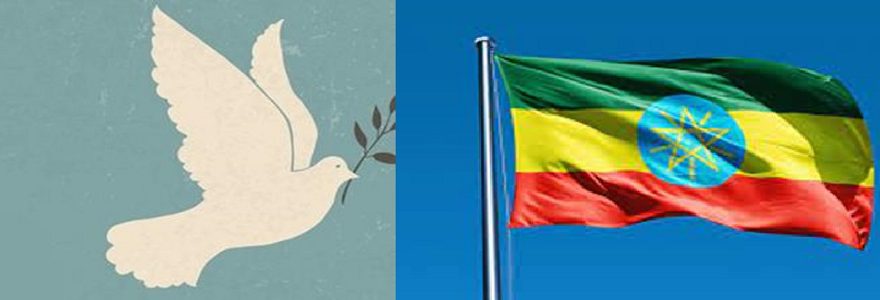
BY MENGISTEAB TESHOME
A conflict and violence by its nature produce negative impacts in any nation. Yes, fragility, conflict, and violence (FCV) present a critical development challenge that threatens efforts to end extreme poverty in both low and middle-income countries. According to the World Bank report, by 2030, up to two-thirds of the world’s extreme poor could live in FCV settings. Conflicts also drive 80 percent of all humanitarian needs.
Violence and conflict has spiked dramatically in the last decade, and the fragility landscape is becoming more complex. Since the outbreak of the COVID-19 pandemic, the world has seen a series of massive setbacks to stability in regions across the world: from Asia and Africa to Latin America and the Caribbean and more recently in Eastern Europe.
These latest developments add on to a multitude of risks affecting FCV settings, including food insecurity, climate change, rising inequality, demographic change, and the socio-economic impacts of the pandemic.
It was in early November 2020 that the Northern Ethiopia conflict and violence broke after months of tension between the Federal Government and the leaderships of Tigray State. We all remember the rigorous efforts made by the government to avoid the conflict. Unfortunately, it could not bear fruit for a number of reasons. However, after heavy costs of life and material loss on both sides, a ceasefire deal was signed in Pretoria that was brokered by the Africa Union.
The effort has kindled hopes in the hearts and minds of peace loving people. Most hold an end to the war that is believed to have killed many and displaced hundreds of thousands of people, destruction of public facilities and private properties.
International and diplomatic communities, scholars and common peoples also hailed the move optimistically hoping it could help to close the chapter of conflict and violence and bring about an opportunity to secure lasting peace. The Ethiopian Herald approached residents to learn their conviction towards the Pretoria peace deal; and the role fellow citizens should play to ensure lasting peace.
Solomon Zegeye, a resident of Addis Ababa and Micro-Business Senior Expert at Nile Insurance Company said that the conflict has disrupted the social life of the local community in many ways and harmed their psychological makeup aside from its huge economic impact. “In short, because of the conflict, I can say “we are in mass stress and trauma.” The Pretoria peace deal, however, has opened a window of hope for the people, especially in conflict ridden-areas who had been in agony, stress and trauma.
Not only that, the conflict price increases depriving the purchasing capacity. The finance sector was impacted negatively and the provision of service in new products was exposed to risk. Thanks to the Pretoria peace deal, now, the finance sector is reviving; and the nation’s Foreign Direct Investment is recovering. As to him, it is a great return that should be upheld.
In bid to secure lasting peace, therefore, the two signatories should abide as per the rules and regulations outlined in the document and exercise them accordingly for the sake of the successors. Similarly, pertinent stakeholders should act promptly in promoting the value of peace among communities in the conflict areas. “We are witnessing that parts of the deal that both parties have agreed to are translated into action. An immediate cessation of hostilities, delivery of humanitarian aid, restoration of basic facilities including electric power and telecom services are going well in Tigray State and the surrounding areas. The process of disarming TPLF’s fighting force is in progress, he added.
“I think the peace deal is progressing well. However, there should be an unreserved effort of all Ethiopians to ensure lasting peace; and I want to call all Ethiopians living at home and abroad to stand in unison.” Dawit Demse, a resident of Addis Ababa for his part said that the peace deal signifies that Africans can address their own cases in their own context. As to him, armed conflict could be resolved and end up through peaceful agreements and addressing differences based on the law of the land.
“In my view, the peace deal marks a significant stride in letting the youth get skills and knowledge. At the same time, it provides a solid foundation for the preservation of Ethiopia’s sovereignty and territorial integrity, which is a core issue to me and the people of Ethiopia.” At this juncture, both signatories need to focus on cultivating a peace agenda and adhering to signed documents; refraining from taking advantages for personal egos. “As peace is a delicate asset, we all should oppose war and preserve peace standing in harmony.”
For instance, Ethiopian investors should pay attention in hiring the combatants investing in the manufacturing sector in bid to create jobs. “In my view, the skills, knowledge, and innovation that people accumulate are the greatest assets of economies on the rise.” Likewise, academicians and policy makers should also buckle up in developing a strategy that promotes human capital‐oriented development that may help to increase peace in Ethiopia.
The Ethiopian Herald December 8/2022/





